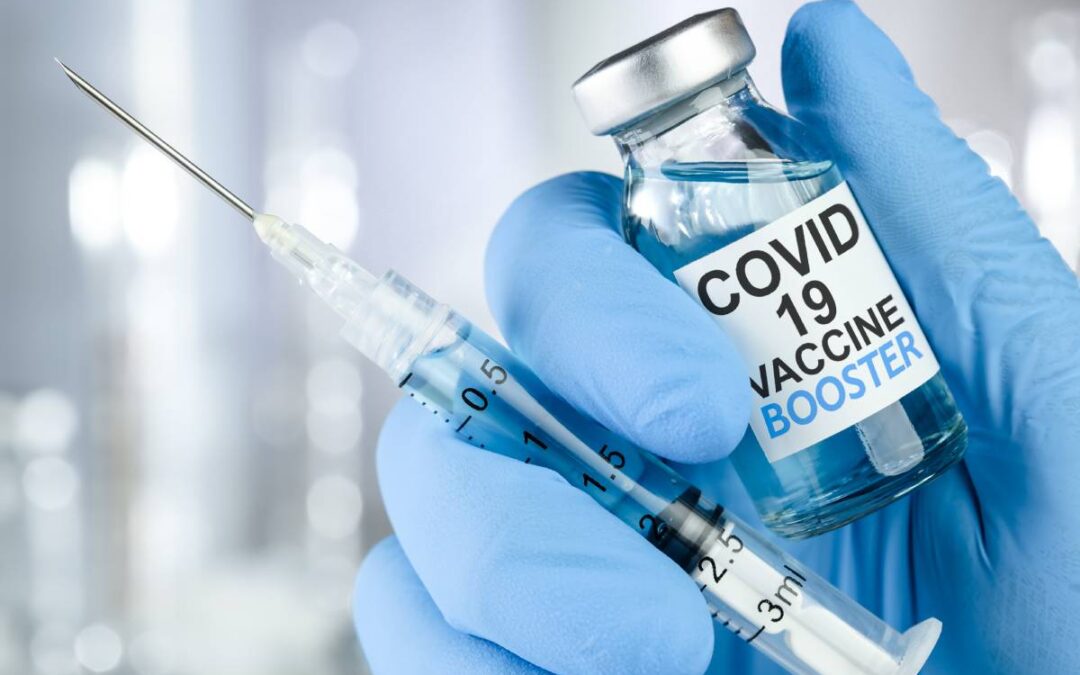In March, the FDA authorized a second booster dose of COVID-19 vaccines for those 50 years old or older and teens and adults who are moderately or severely immunocompromised, bringing the total count up to four doses for older adults and five doses for immunocompromised individuals. The latter group has a primary series of three doses of mRNA vaccines, whereas non-immunocompromised people receive two in their primary series. If eligible people choose to receive a second booster, it should occur at least four months after the first in order to maximize protection [1-3]. This authorization was made in order to offer continued protection for these more vulnerable groups that have weaker immune responses and a higher risk of severe disease [3]. However, the scientific community is less certain about the benefits of a fourth COVID-19 vaccine dose for the general population [3][4].
Several factors determine the need for vaccine boosters. Immunity to a certain pathogen, whether acquired from an infection or a vaccine, tends to fade over time [2][4]. Though recovery from an infection does typically provide protection against future exposure due to immunological memory, the duration of this protection varies, and different components may last longer than others. For example, current guidelines recommend a tetanus booster every ten years, while measles survivors are generally protected against subsequent exposure for life [5]. Another important factor is how quickly the pathogen evolves such that previous vaccines become less effective. The flu vaccine, for example, is formulated ahead of each year’s flu season based on the most up-to-date predictions on what will be most effective because of how quickly the virus mutates, and people are encouraged to get the shot every year [5].
In the context of COVID-19, it has been well-established that immunity wanes on the scale of months. In particular, health officials are concerned by the loss of protection against severe disease in older and immunocompromised individuals. Thus far, data suggest that available vaccines continue to provide protection against newer variants of SARS-CoV-2, including delta and omicron to a reasonable extent [1]. However, it is possible that future variants will emerge to challenge this. Research suggests that, already, the omicron variant is associated with a higher risk of reinfection.
In order to examine what benefits, if any, a fourth dose of the COVID-19 vaccine offers for non-immunocompromised adults, researchers in Israel performed a small-scale study in healthcare workers. Israel has had arguably the most aggressive approach to COVID-19 vaccination among Western countries and has thus been able to provide critical early insights on vaccine efficacy. 274 healthcare workers received a fourth dose, either BNT162b2 or mRNA-1273, and were compared to two age-matched controls each [1][4]. IgG antibody levels and live neutralization titers both increased by factors of approximately 10, but still did not majorly exceed the levels that were achieved soon after the third dose [3][4]. In this small study, the fourth dose of COVID-19 vaccine had a 30% efficacy against infection and an estimated 31-43% efficacy against symptomatic disease [4].
The limited effect of a fourth dose in the general population has so far not convinced the FDA to announce full authorization. Many experts believe that fourth doses should be targeted only to more vulnerable populations, while broader vaccination campaigns should still focus on administering third doses [3]. More vaccines can also be funneled into the COVAX vaccine sharing initiative to provide first and second doses in other countries.
References
- FDA. “Coronavirus (COVID-19) Update: FDA Authorizes Second Booster Dose of Two COVID-19 Vaccines for Older and Immunocompromised Individuals.” U.S. Food and Drug Administration. March 29, 2022. https://www.fda.gov/news-events/press-announcements/coronavirus-covid-19-update-fda-authorizes-second-booster-dose-two-covid-19-vaccines-older-and
- CDC. “COVID-19 Vaccines for Moderately or Severely Immunocompromised People.” Centers for Disease Control and Prevention. Updated April 12, 2022. https://www.cdc.gov/coronavirus/2019-ncov/vaccines/recommendations/immuno.html
- Sheikh, K. “Who Should Get a 4th Covid Shot?” New York Times. April 12, 2022. https://www.nytimes.com/article/4th-covid-shot-2nd-booster.html
- Regev-Yochay, G., Gonen, T., Gilboa, M., et al. Efficacy of a Fourth Dose of Covid-19 mRNA Vaccine against Omicron. New England Journal of Medicine. 2022; 386:1377-1380. DOI: 10.1056/NEJMc2202542
- Cohen, J. “How long do vaccines last? The surprising answers may help protect people longer.” Science. April 18, 2019. https://www.science.org/content/article/how-long-do-vaccines-last-surprising-answers-may-help-protect-people-longer







Recent Comments